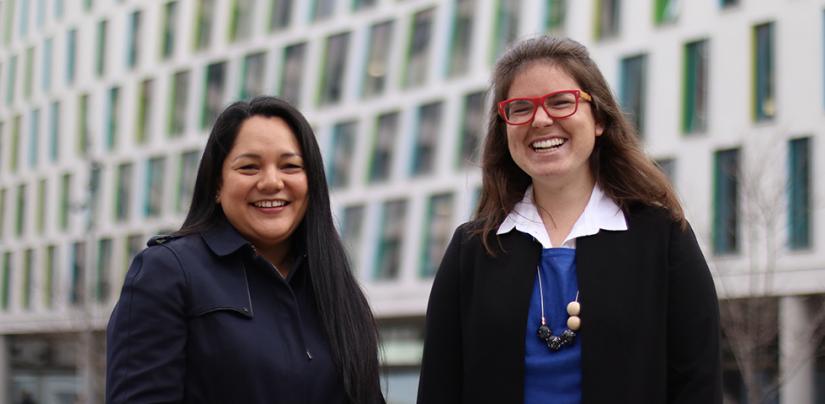Take a moment to say the words ‘biodiversity’, ‘climate change’ and ‘ecology’ out loud. It probably only took you a few seconds? But what if you were asked to spell each word out with your fingers?
This is the reality faced by those in the deaf and hard of hearing community, and it is a reality that UTS Environmental Science graduate Emily Quinn-Smyth is determined to change.
Born profoundly deaf and having had cochlear implants since the age of two, Emily is acutely aware of the importance of diversity and inclusion in communication.
While studying at UTS, Emily discovered that Auslan (Australian sign language) had no basic environmental science related signs. Words such as ‘biodiversity’, ‘climate change’ and ‘ecology’ have to be spelt out using fingers, which presents a significant barrier to those who are deaf and hard of hearing, and who want to get involved with science.
Her ‘a-ha’ moment came while undertaking the undergraduate fieldwork subject Alpine and Lowland Ecology.
“We were around a campfire talking about how to be better communicators in science. I was like, ‘What happens for people who speak or use Auslan? How do they get involved in the world of science?’ My teacher and I didn’t know. And I wanted to find out,” she said.
Emily went on to write the report, ‘Falling on Deaf Ears: Effective Communication of Science and the Current Gaps in Auslan in the Scientific World’, which investigated the issue in more depth. An explanatory video featuring Auslan interpreter Linda Finucane also accompanied the report.
Throughout this process Emily made sure to include the deaf and hard of hearing community because, “if there were going to be new signs generated, it would have to be Auslan users themselves who create them.”
Emily's passion for inclusion and accessibility isn't restricted just to academia. Her advocacy work has seen her present at events such as the Science Australia Gender Equity Symposium (SAGE), as well as the Power of Speech event at Canberra's Parliament House with the aim of raising scientists' and politicians’ awareness of these issues.
She has also been involved with the creation of awareness raising materials such as videos, blogs, newspaper articles and podcasts.

UTS Science Lecturer Yvonne Davila and Emily Quinn Smyth. Photo: Stella Thai.
“There is a great need for increased general community awareness of the equity and access issues people face. Being profoundly deaf and the younger sister to a man with Down Syndrome has me acutely aware of the challenges people with disability face. I am honoured to increase community awareness about disability, particularly for deaf people in the sciences,” she said.
“There were times when I was growing up when being deaf was a real big barrier but I think as I’ve gotten older I’ve learnt to become more comfortable in my deaf identity and now it’s something I really embrace and something I’m really proud of and I certainly want to take it forward and go into the future with it.”
Emily is currently undertaking an environmental education internship with A Rocha, an environmental stewardship organisation that works in conservation, environmental education and sustainable agriculture, in Canada.
She was presented with the Social Inclusion Award at the 2018 UTS Human Rights Awards, for her work in trying to bridge the gap in the scientific sphere for those who are deaf and hard of hearing.

